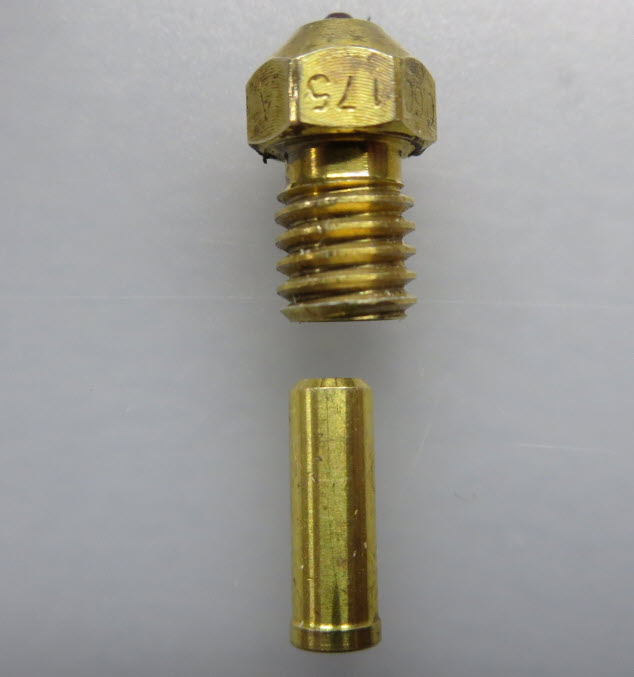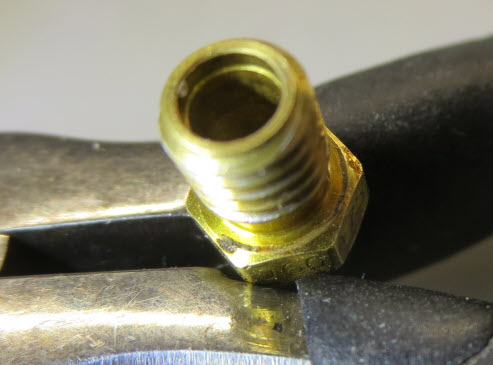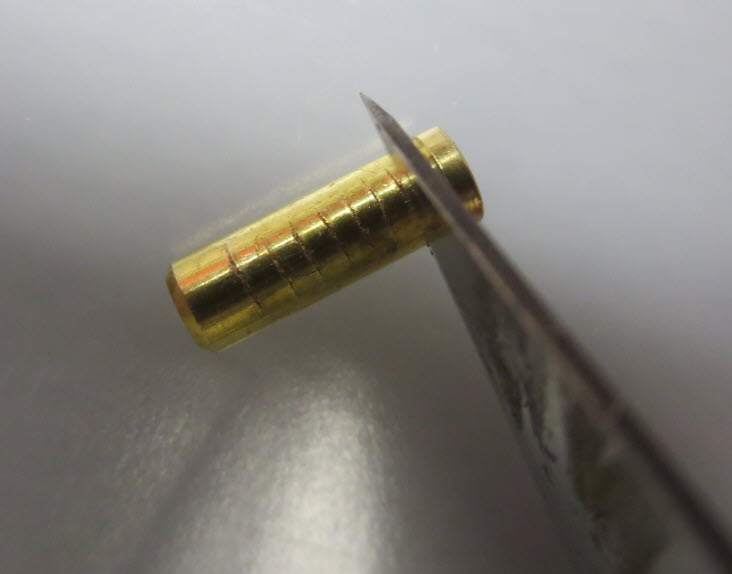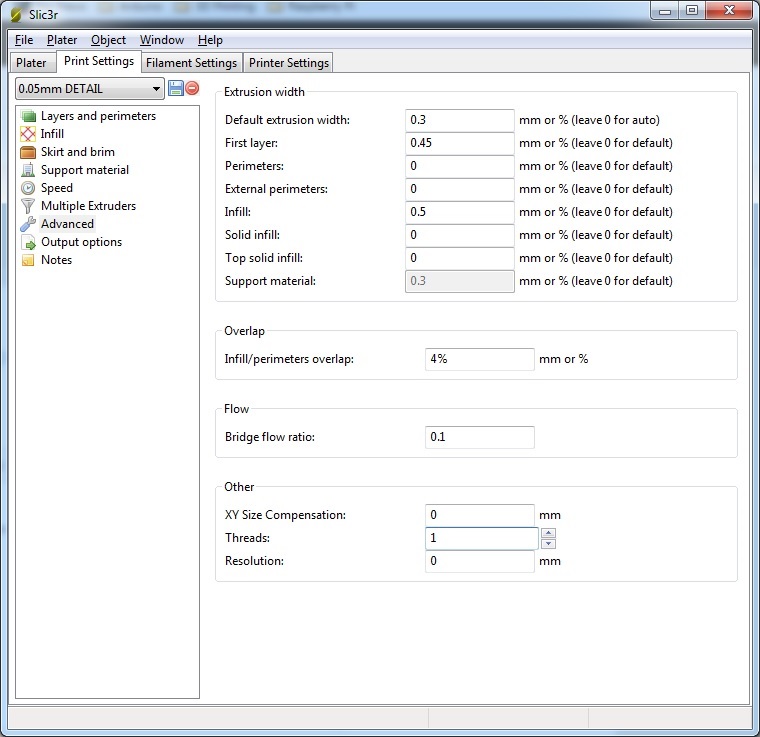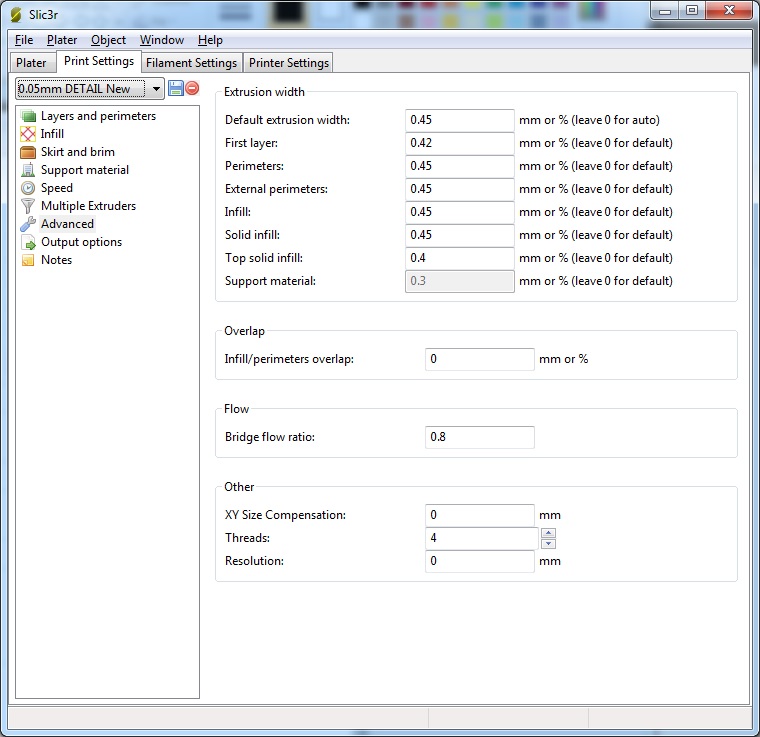Having issues with Olsson Ruby? - READ THIS!
I have an MK3 with a 0.6 mm Olsson Ruby and I was having the infamous under-extrusion issue. I was in the process of cleaning my clogged ruby ( at least I though it was clogged), when I had a strange thing happen. In order to clean the nozzle I ran a .079 (2mm) drill bit into the back of the nozzle using a cordless drill on very low speed. As curls of plastic were coming out I stopped the drill and pulled on the drill bit to pull out the plastic. A brass sleeve pulled out of the ruby nozzle. I always understood this to be a two piece design consisting of the brass nozzle with the ruby tip, but it is in fact a three piece design with a brass nozzle, the ruby tip, and a brass sleeve insert. I was dismayed to see that the makers of the ruby nozzle use yet another thermal interface in a place where it is not desirable to have one. The brass insert runs the full length of the inside of the brass nozzle, up to the back of the ruby insert. Instead of being a full length press fit it merely has a slightly larger diameter shoulder that is only 1/10 of the length of the sleeve that presses into a counterbore in the back of the nozzle. The rest of the sleeve is a loose fit in the nozzle. This means POOR thermal conduction in most of the melt zone.
The 0.6 mm nozzle demands more thermal conductivity to deliver the extra heat required to melt the larger volume of plastic, so this is very problematic. This nozzle was purchased in December 2017. Unless they changed this design in the last year, you may have the same issues.
It seems that in order to reduce the cost of manufacture, it was cheaper to mass produce the nozzle with a common large bore and then use an insert sized for the filament. This way the manufacturer could have a large inventory of a common part and press in the cheaper part to make it it a 1.75mm nozzle. Unfortunately the end result is a nozzle that does not seem to have the ability to pump the heat quickly to the melt zone because most of the length of this sleeve is barely touching the inside bore of the nozzle so the top ten percent of the sleeve furthest away from the ruby tip is trying to keep the entire melt zone hot. It just ain't gonna work.
So if you have been finding that your expensive 0.6 Ruby does not keep pace with your cheap run of the mill brass 0.6, you are not doing anything wrong, the nozzle is just not designed to transfer the heat the way it ought to. I am so disappointed because I have invested in two of these things, one is a 0.4 and the other is a 0.6.
So with a project to finish I decided to take a shot at improving the thermal transfer. With the high temperature of the hotend, thermal grease is not a good option, and would be difficult to get good coverage even if it could handle the temp. A mechanical means is needed. Since the sleeve is very much like the heater cartridge in the heater block (cylinder inside a hole) it should be possible to get much better performance if I could shove the sleeve against the side of the hole, rather than let it sit comfortably centered in the hole, as it was by design. Since this is too small an area for a grub screw, I decided knurling the sleeve would be a good approach. Knurling raises the material around a groove, so I used a utility knife to groove the relatively soft brass. (see photo). I put a row of grooves along one side of the sleeve, about 1/4 around the diameter.
This did cause the sleeve to have a tight fit in the hole inside the nozzle for the entire length of the hole as I pressed it back in. There is not enough slop between the sleeve and the bore (about a half a thou for fellow machinists) to cause a step in the extrusion path. I verified this by sliding a slightly undersized drill bit into the nozzle.
I re-assembled the nozzle into the hotend and re-started the print.
Night and day!!
Steve Musante
Re: Having issues with Olsson Ruby? - READ THIS!
More photos:
Steve Musante
Re: Having issues with Olsson Ruby? - READ THIS!
Honestly I’ve always heard the rumor that the ruby nozzle less conductive than other options. Looks like you discovered why. Also, I doubt the ruby itself is a good conductor, so you’re probably losing the opportunity for some heat at the very tip.
I’ll admit I’ve never been a fan. If I’m printing fiber filled materials I’d rather have hardened steel, otherwise brass works fine for me. Another option if you want to print fast enough that thermal conductivity is an issue is E3D’s nickel plated copper.
I guess if you’re printing kgs upon kgs of fiber filled filaments it’d be something to consider, but outside of that I’m not sure it really has any benefit.
Re: Having issues with Olsson Ruby? - READ THIS!
Wow. That's incredibly bad design. Why would you do that? I'd like a comment from the makers now... it should at least have been full of thermal paste in the interface.
Re: Having issues with Olsson Ruby? - READ THIS!
Some sorts of Thermal paste decompose at temperatures that can be reached in a printer heater I understand that Arctic silver should not be used above 280C for example.
Re: Having issues with Olsson Ruby? - READ THIS!
I think there's some used in cars near the engine that is more like 400-600°C but it was a LONG time since I was informed about those. I can't see why it isn't machined to the right size instead.
Re: Having issues with Olsson Ruby? - READ THIS!
You may be interested in this then:
https://e3d-online.com/blog/2018/11/23/nozzle-x-the-one-to-rule-them-all/
Normal people believe that if it is not broke, do not fix it. Engineers believe that if it is not broke, it does not have enough features yet.
Re: Having issues with Olsson Ruby? - READ THIS!
You may be interested in this then:
https://e3d-online.com/blog/2018/11/23/nozzle-x-the-one-to-rule-them-all/
I actually ordered one before I saw this. XD
Re: Having issues with Olsson Ruby? - READ THIS!
You may be interested in this then:
https://e3d-online.com/blog/2018/11/23/nozzle-x-the-one-to-rule-them-all/
I have a pair of them in 0.4mm and 0.6mm being sent to me as xmas gifts by my best friend in london.
Production delays mean I won't see them until sometime in January but I look forward to using them.

I have been using their solid Copper nickel plated nozzle for a few months and I like the way it responds to temperature change commands with Taulman Bridge

Re: Having issues with Olsson Ruby? - READ THIS!
I'll have to follow this subject also. I bought an Olsson thinking it would be a good investment. Can you utilize a higher nozzle temperature to adjust for the issue?
Re: Having issues with Olsson Ruby? - READ THIS!
I was initially raising the temperature to try to solve the under extrusion. It only helped a little but when I needed extra print speed for large infills I still had problems. There is not a reliable way to fix poor thermal transfer except the fix I used.
Steve Musante
Re: Having issues with Olsson Ruby? - READ THIS!
You mention the 0.6mm has this problem, what about the 0.4mm size?
